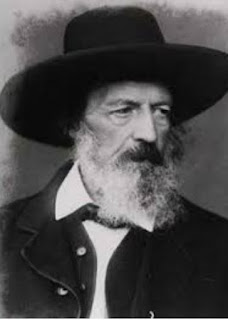Break, Break, Break poem analysis
Break, Break, Break poem
- Alfred, Lord Tennyson
Break, break, break,
On thy cold gray stones, O Sea!
And I would that my tongue could utter
The thoughts that arise in me.
O, well for the fisherman's boy,
That he shouts with his sister at play!
O, well for the sailor lad,
That he sings in his boat on the bay!
And the stately ships go on
To their haven under the hill;
But O for the touch of a vanish'd hand,
And the sound of a voice that is still!
Break, break, break
At the foot of thy crags, O Sea!
But the tender grace of a day that is dead
Will never come back to me.
Alfred Lord Tennyson was a great Victorian poet. He was appointed poet Laureate in succession to Wordsworth. Tennyson is best remembered for his numerous great poems like 'The Lotos-Eaters', 'Ulysses' and 'Locksley Hall'. He also wrote several important longer narrative and reflective poems, like The Princess, Enoch Arden, Idylls of the King and the well-known elegy In Memoriam, written between 1833 and 1850 in memory of his friend Arthur Hallam. At its best, Tennyson’s poetry is justly celebrated for its beauty of style, musical quality, pictorial power and depth of feeling.
The poet's exceptional self-control and meticulous choice of detail make for the deep emotional impact of each image. Tennyson ‘s heart is moved all the more deeply ,while he sits by the sea ,because the general feeling of sadness induced by the waves is made sharper and more specific for him by the recent death of his young , promising friend. The heavy, monotonous roar of the sea-waves breaking on a rocky shore has often produced a deep, nameless sadness in the human heat . Poets and philosophers have given voice to their gloom in the presence of the sea since very early days.
- Alfred, Lord Tennyson
Break, break, break,
On thy cold gray stones, O Sea!
And I would that my tongue could utter
The thoughts that arise in me.
O, well for the fisherman's boy,
That he shouts with his sister at play!
O, well for the sailor lad,
That he sings in his boat on the bay!
And the stately ships go on
To their haven under the hill;
But O for the touch of a vanish'd hand,
And the sound of a voice that is still!
Break, break, break
At the foot of thy crags, O Sea!
But the tender grace of a day that is dead
Will never come back to me.
Alfred Lord Tennyson was a great Victorian poet. He was appointed poet Laureate in succession to Wordsworth. Tennyson is best remembered for his numerous great poems like 'The Lotos-Eaters', 'Ulysses' and 'Locksley Hall'. He also wrote several important longer narrative and reflective poems, like The Princess, Enoch Arden, Idylls of the King and the well-known elegy In Memoriam, written between 1833 and 1850 in memory of his friend Arthur Hallam. At its best, Tennyson’s poetry is justly celebrated for its beauty of style, musical quality, pictorial power and depth of feeling.
The poet's exceptional self-control and meticulous choice of detail make for the deep emotional impact of each image. Tennyson ‘s heart is moved all the more deeply ,while he sits by the sea ,because the general feeling of sadness induced by the waves is made sharper and more specific for him by the recent death of his young , promising friend. The heavy, monotonous roar of the sea-waves breaking on a rocky shore has often produced a deep, nameless sadness in the human heat . Poets and philosophers have given voice to their gloom in the presence of the sea since very early days.




Comments
Post a Comment